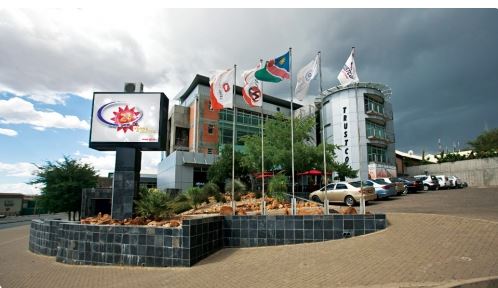JOHANNESBURG – Six African countries that produce more than half of the world’s diamonds by value will form a syndicate this month to increase their influence on the N$92,2 billion global market for rough stones.
Angola, Botswana, Congo, Namibia, South Africa and Zimbabwe would send representatives to Luanda this week to establish the group, Victor Kasongo, deputy mines minister in the Democratic Republic of Congo, said on Friday. The so-called African Diamond Producers Association was conceived by producers last year.”We will establish the Opec of diamonds,” Kasongo said.”We will form united diamond policies, so that we have more power in the international arena.”Botswana, the world’s largest diamond producer by value, Namibia and South Africa are leading the effort to reap more benefit from gem production.They are trying to wrest more of the world’s cutting and polishing industry from traditional centres in Belgium, Israel and India, by forcing mining companies to offer rough stones for processing at home.However, a local analyst, who declined to be identified, said on Friday that De Beers earned a very low return on capital and was not a very profitable business.The reason was that Botswana already took an enormous amount of tax, as well as 25 per cent of the profit share and royalties.The same was true for Namibia and South Africa.”Diamond manufacturers or companies are not making a fortune,” said the analyst.”This is not a windfall of profit they need to wrestle away.”These African companies produce a mix of diamonds.Some are big and some are small, and it costs more to cut the stone in India than what the stone is worth.”South Africa and Africa cannot economically, at our wage rate, cut small stones.”We cannot produce a T-shirt cheaper in South Africa than the Chinese and we cannot cut a diamond cheaper than the Indians.The stones that can be economically cut here are cut here.”The analyst added: “You could cut more, and De Beers is trying to do more.There is a perception that government is trying to get more but at some point it becomes economical to carry on mining and we’re not far from that point.” Angola, Botswana, Congo, Namibia and South Africa account for 60 per cent of the world’s diamond output last year.The push by such countries to gain greater control of their natural resources follows the examples set by Opec, the oil producers’ cartel, and the Gas Exporting Countries Forum.Bloomberg, Business DayThe so-called African Diamond Producers Association was conceived by producers last year.”We will establish the Opec of diamonds,” Kasongo said.”We will form united diamond policies, so that we have more power in the international arena.”Botswana, the world’s largest diamond producer by value, Namibia and South Africa are leading the effort to reap more benefit from gem production.They are trying to wrest more of the world’s cutting and polishing industry from traditional centres in Belgium, Israel and India, by forcing mining companies to offer rough stones for processing at home.However, a local analyst, who declined to be identified, said on Friday that De Beers earned a very low return on capital and was not a very profitable business.The reason was that Botswana already took an enormous amount of tax, as well as 25 per cent of the profit share and royalties.The same was true for Namibia and South Africa.”Diamond manufacturers or companies are not making a fortune,” said the analyst.”This is not a windfall of profit they need to wrestle away.”These African companies produce a mix of diamonds.Some are big and some are small, and it costs more to cut the stone in India than what the stone is worth.”South Africa and Africa cannot economically, at our wage rate, cut small stones.”We cannot produce a T-shirt cheaper in South Africa than the Chinese and we cannot cut a diamond cheaper than the Indians.The stones that can be economically cut here are cut here.”The analyst added: “You could cut more, and De Beers is trying to do more.There is a perception that government is trying to get more but at some point it becomes economical to carry on mining and we’re not far from that point.” Angola, Botswana, Congo, Namibia and South Africa account for 60 per cent of the world’s diamond output last year.The push by such countries to gain greater control of their natural resources follows the examples set by Opec, the oil producers’ cartel, and the Gas Exporting Countries Forum.Bloomberg, Business Day
Stay informed with The Namibian – your source for credible journalism. Get in-depth reporting and opinions for
only N$85 a month. Invest in journalism, invest in democracy –
Subscribe Now!










